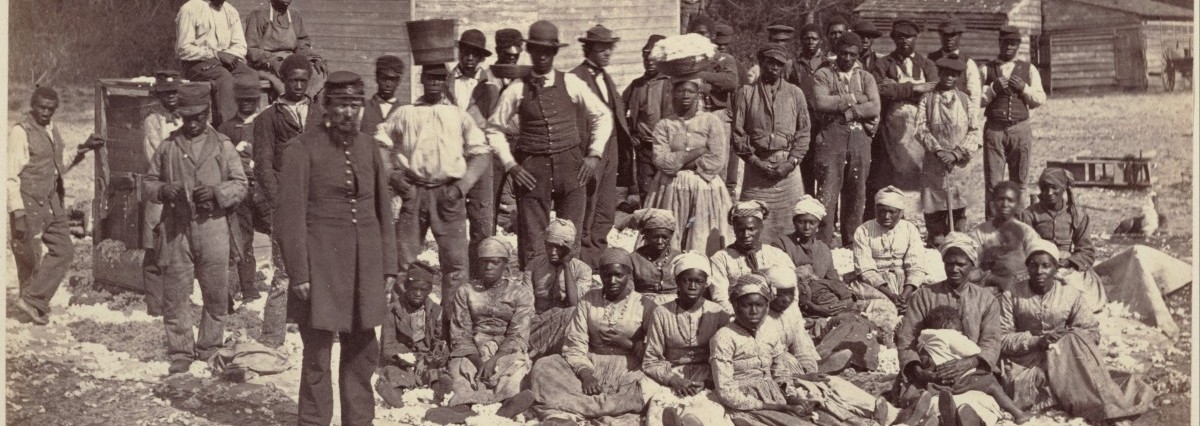I’ve said numerous times that actual Confederates would be utterly confused by the rise of the black Confederate myth in the last two decades, especially as it has been framed by individuals and organizations that claim legitimacy through their ancestral connections. For the latter, the black Confederate narrative is intended to distance the Confederate war effort from the explicit goal of establishing a slave-holding nation – the very goal that united so many even past the point where victory appeared to be likely. In short, this narrative places Confederates and their descendants in two different worlds, with one claiming the existence of the very thing that the other was fighting to prevent.
As we all know, apart from mistaken accounts by Union soldiers – often published for political purposes – there are no wartime accounts by Confederates affirming the existence of a single black Confederate. Not one. We do have accounts that indirectly deny their existence in the form of hundreds of newspaper editorials, letters and diary entries authored by Confederates in the army and home front in 1864-65 concerning whether their country should recruit slaves as soldiers. The debate makes little sense if free and enslaved blacks were already fighting as soldiers in the army.
But if you need something more direct in its denial consider the testimony by Confederate General Montgomery D. Corse, who served throughout the entire war. Here is what the general had to say in front of the Joint Committee on Reconstruction on February 8, 1866:
Q: In your military service did you ever encounter any of the black troops on the field?
A: No sir; I never encountered any black troops at all; I have had them in front of me on picket [i.e. black Union troops].
Q: So far as you know, or have been informed, what is their quality as troops?
A: So far as my own belief is concerned, I think they are capable of being made valuable troops. I think it was a very great mistake that we did not put them into the service of the Confederate States in the beginning.
Q: Why did not your confederacy give them their freedom?
A: That is what I say. We should have gone to work, given them their freedom, and made soldiers of them; we ought to have held up their freedom as a bait and mustered them all into the service, making their freedom the reward.
Q: Suppose that, instead of putting them into the confederate service, the confederacy had emancipated the entire race and then used them as soldiers?
A: That would have been better; we then would have had a prospect of success; but the people were not prepared for it.
Corse offers no qualification to this assessment because none is necessary. He is free to imagine a different outcome to the war as a result of the enlistment of slavers. No doubt, the sting of defeat made it easier to do so, but even Corse couldn’t escape the insurmountable obstacle that he gave voice to in his final answer: the Confederacy fought to protect the institution of slavery, not to dissolve it.
Thanks to James Epperson for passing this along.

Thank you for the shout-out, Kevin, but the true thanks should go to Steve Miller, who made that post to a Civil War newsgroup in the 90s. At the time, he was associated with the University of Maryland’s Freedmen and Southern Society Project, but I don’t know where he is now. He was a good guy to exchange ideas with. I have always thought that Corse’s testimony was kind of fatal to all this moonshine about black Confederates in uniform.
Steve is still at UMD, still with the F&SSP. I sent him an email with the blog address, and I hope he checks in.
You and your pesky facts. 🙂
Seriously, this topic has amazing sustainability. I’m probably repeating myself, but I am convinced that it stays alive for one reason and one reason only:
“Black Confederate” supporters simply cannot balance their own modern beliefs against those of the mid-19th century. They simply cannot. Some might even hold some baseline form of racial bigotry, but they cannot fathom actually owning another human being. Incredibly, the very thing they accuse their opponents of (political correctness especially) is absolutely intertwined with their insistence that black Confederates were real, i.e. they apply there modern sensibilities with events of 150ish years ago.
As to their ignorance about who was defined as a soldier (white or black) in the mid-19th century, well, that is another issue altogether.
Corse makes emancipation sound like a public relations challenge — if only we could convince people, we could have done this. I wonder if Corse even understood the practical and political challenges involved. The Confederate constitution barred the national government not only from emancipating slaves, but from passing any law “denying or impairing the right of property in negro [sic.] slaves.” Wholesale emancipation would require a constitutional convention called by the Confederate states, then ratification by two-thirds of the Confederate states. Virtually every prominent political figure in the Confederacy was a slaveholder; were they going to willingly agree to forfeit half or more of their personal wealth as a political gesture? Corse might as well have said, “we should have sprouted wings and flown”; it was never going to happen.
Corse’s words sound a lot like those of General Longstreet in the movie “Gettysburg” when he said “We should have freed the slaves, THEN fired on Fort Sumter.” But for too many people, they just couldn’t have the Confederacy without slavery.